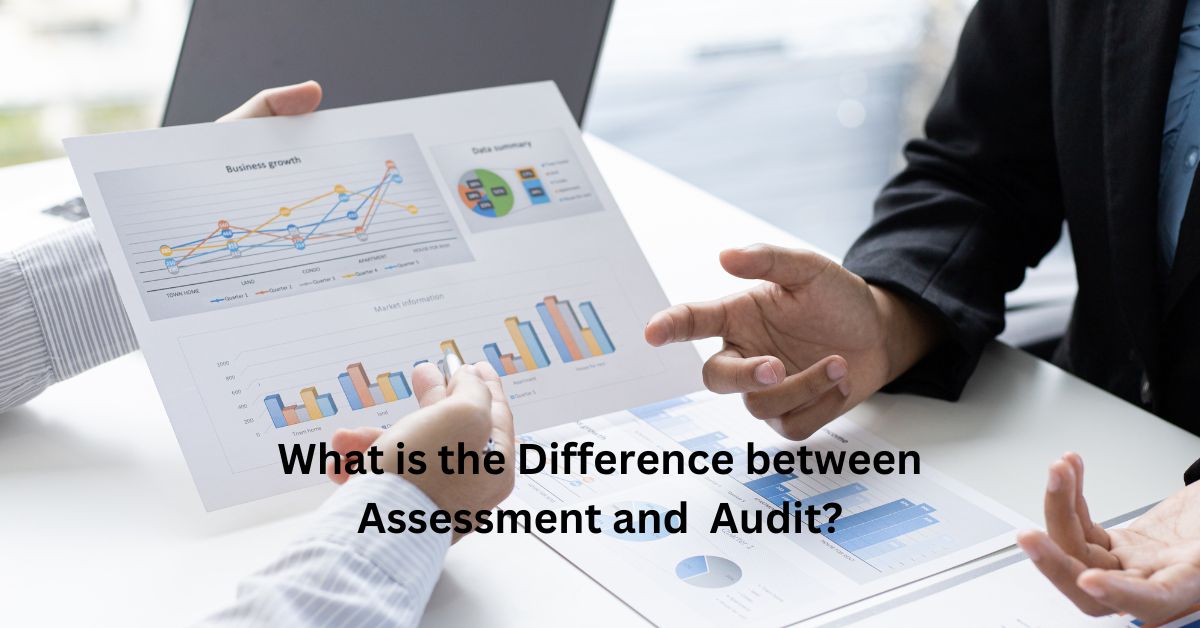Starting with the most basic difference between assessment and audit is that while one is done to measure the value around something important, for instance a project, the later is an extensive process that is done to ensure that there has been no manhandling.
We have discussed these very points in detail below. So, make sure to read until the end.
What is an Assessment?
As the name suggests, assessment in layman’s terms is assessing every factor that could play a major factor in something. To better clarify this term, here is a small example.
Suppose you are starting your own start-up. Now before you go all the way in, there are many things to consider, including the investment required, products to be manufactured, marketing channels, cost of manufacturing products, and many other points. Without having a detailed plan and a lot of discussion, executing the idea would be next to impossible, and so all these processes of considerations and calculating the value is termed as “assessment”.
Generally the procedure of assessment is made up of a number of steps. From planning to execution and even calculation of the cost involved, every step counts to the overall judgement of how well the project will perform. So, while audit is a part of assessment, assessment is not a part of audit.
Similarly, another way of describing assessment is forming opinions and discussions. A number of individuals (usually the ones involved) come together to either gauge the tit-bits of the subject or assign a specific team to it.
What is an Audit?
In simple terms audit is a long process that is held by third party professionals for ensuring transparency and preventing material misstatement amongst two involved parties. This is a safety measure and is followed by most economic institutions on a regular basis or when a dispute is registered by any of the said parties.
When an audit is done, it usually starts with the detailed and thorough revision of all economical logs. The professionals sweep through every transaction, calculating the profit and loss, and even checking the bills or receipts of the same. Like mentioned previously, this is a very complicated process and hence depending upon the project type the audit could easily last for a few days and sometimes even months.
By doing so, not only are any risks of manhandling prevented, but also it serves as a corrective measure that could easily save the project from running into huge losses. The professionals who do these processes are known as auditors and may either be owned and operated by a private institution or could be led by the Government authorities.
So what is the difference between Assessment and Audit?
The difference between assessment and audit includes:
Definition
As we covered earlier, assessment is discussing the tit-by-bits of a project while audit refers to the careful cross checking of all economical logs and records. So while the former is a continual process, the latter is usually planned and carried out towards the end of a financial year or when a dispute is raised by any of the involved parties.
Constitution
Assessment is usually done by the business partners or stakeholders where business and investment ideas are discussed and later implemented. Although not common, some larger companies may also hire a professional team of assessors with years worth of experience for a better understanding of what’s profitable for their project.
Similarly, auditing is also done by a professional team of auditors who are unrelated to any of the two parties in a project. This is to ensure that the audit is done unbiased and is entirely based upon finding the truth and malpractices, if any. This data is then compiled by the same professionals and presented to both the parties, where further action can be implemented.
Here is a tabular form of the difference between assessment and audit for a quick read.
| FACTORS | ASSESSMENT | AUDIT |
| Definition | It is the method of discussing various factors that could be beneficial to a project | In this procedure, economical and related logs are cross checked to make sure there are no material misplacements |
| Performed by | Done by involved members, business partners, and stakeholders | Requires involvement of third party audit professionals |
| Regulated by | Can be own or by private organisations | Third party operations that can be operated by either private or Government owned authorities |
| Frequency | Done frequently | Done at the end of the financial year or when a dispute is raised |
| Leads to | Discussion of business improvement ideologies | Correction of any malpractices or miscalculations that could be resulting in huge losses both internal and external |
Final Thoughts
So even though the two terms may seem identical, there is a thin line that makes out the difference between assessment and audit. Therefore, confusing between the two terms and mixing their responsibilities is never a wise choice.
You may also like:
Difference between Austenitic and Martensitic Stainless Steel







